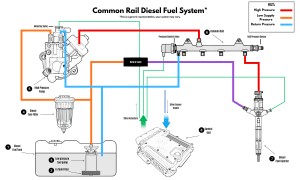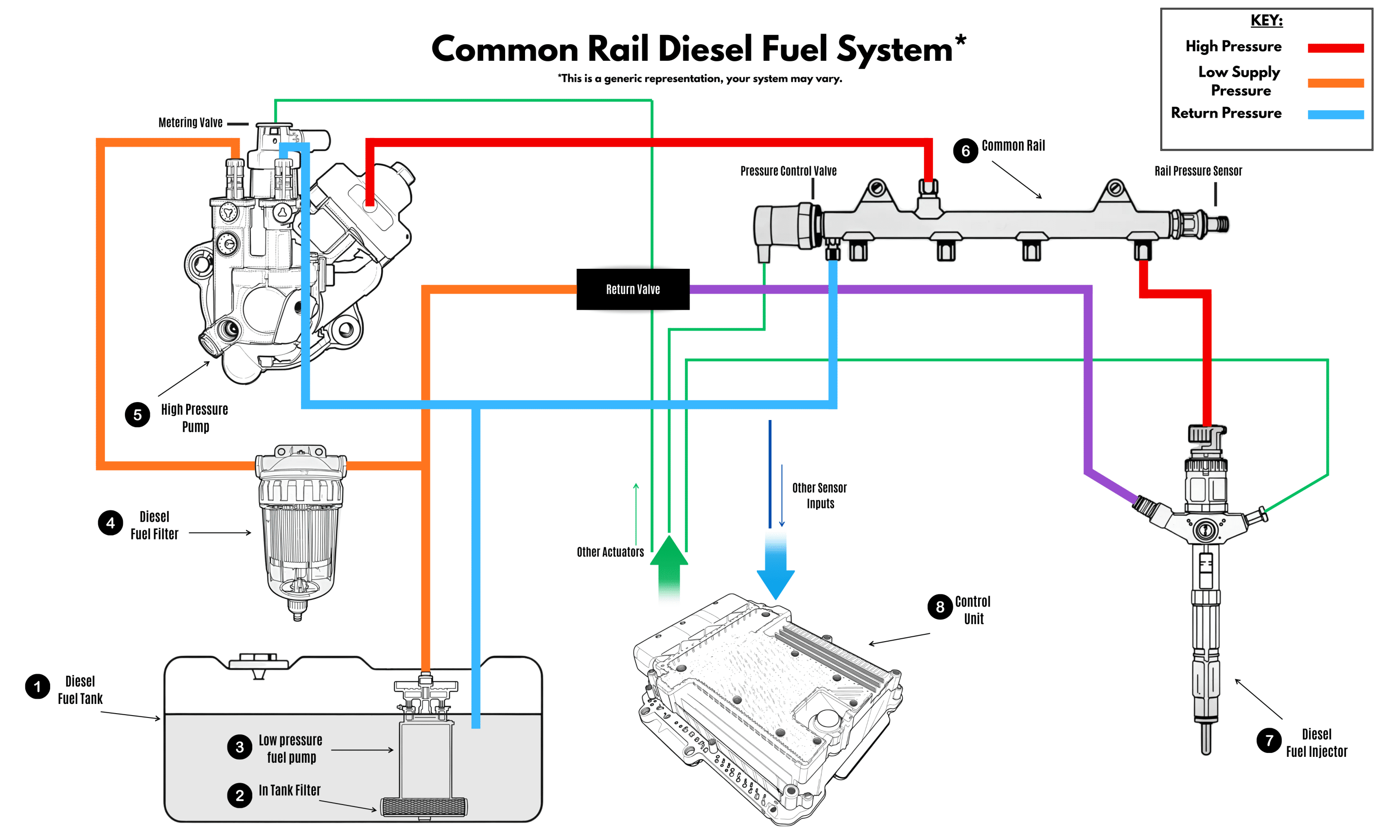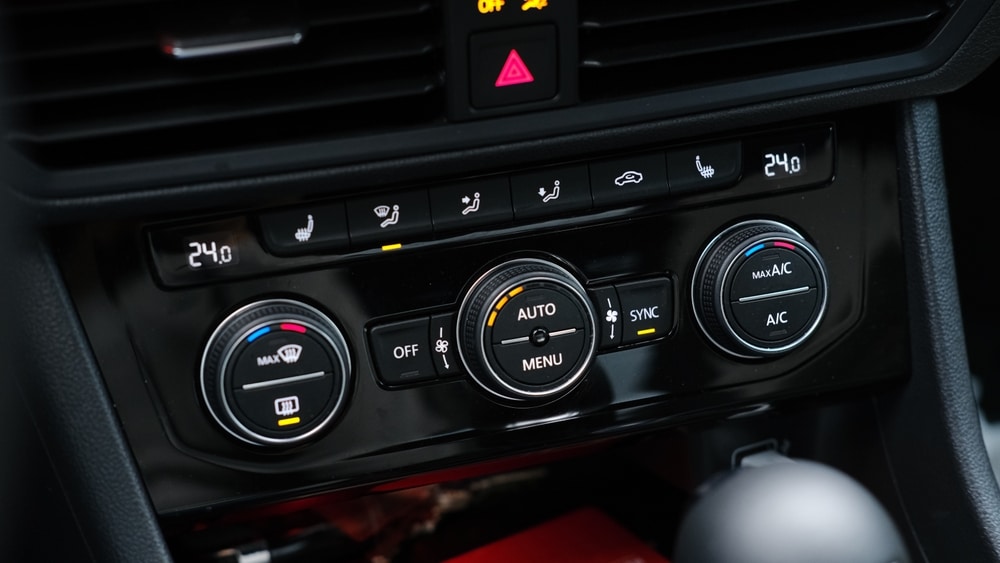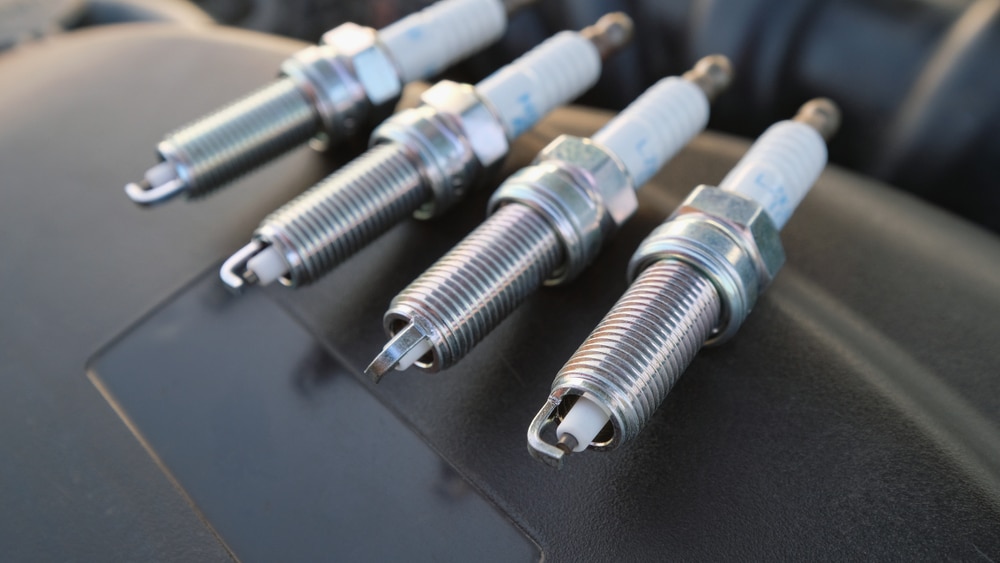How the Diesel Fuel System Powers Your Engine
Every smooth-running diesel engine relies on one thing: its fuel system.
This intricate setup plays one of the most important roles in your vehicle: moving diesel from the tank to the engine so combustion can take place. Without it, your car wouldn’t run at all.
Today’s diesel cars use advanced common rail diesel fuel systems. These are designed to deliver fuel at precisely the right pressure, providing the balance of performance, economy, and durability that drivers in Dursley, Bristol, Tetbury, Gloucester and the surrounding areas depend on.
But here’s where problems arise.
Because your vehicle’s diesel fuel system runs under incredible pressure with high accuracy, small mistakes, like putting off a diesel fuel filter change or misfuelling with petrol, can cause significant damage in a short time.
This blog will take you through how your diesel fuel system works, what risks can build up if servicing is neglected, and how regular care at RS Autotechnik in Dursley helps prevent expensive breakdowns.
How Your Diesel Fuel System Works
Diesel fuel systems come in different forms, but the vast majority of modern vehicles are equipped with the common rail diesel fuel system.
While each common rail diesel fuel system design has slight differences, the fundamental idea is the same: a high-pressure rail feeds fuel to every injector, ensuring steady fuel delivery and flexible injection control.
The common rail fuel system is divided into two sections:
- Low-pressure stage: Diesel is pumped from the tank by the diesel fuel pump, then directed through filters to remove impurities before reaching the high-pressure pump. This ensures a dependable supply of clean fuel at the right pressure, protecting the more delicate components further along the system.
- High-pressure stage: The high-pressure pump compresses the fuel to extremely high levels and delivers it to the common rail. This rail acts like a pressurised reservoir, distributing the diesel evenly to the injectors. The diesel injectors then atomise the fuel into the engine as a very fine mist at the exact point required for combustion.
Put simply, the diesel fuel system ensures that clean, pressurised fuel reaches the cylinders precisely, helping your engine run smoothly and efficiently.
If you’d like expert guidance on your own diesel vehicle, RS Autotechnik in Dursley can confirm your vehicle’s diesel fuel system type as part of your service.
Inside the Diesel Fuel System – A Closer Look
With the system overview in mind, it’s worth breaking down the diesel fuel system into its individual elements. Each part has a defined function, and working together allows your engine to perform as intended.

The Low-Pressure Side of the Diesel Fuel System
Fuel Tank & Low-Pressure Fuel Pump
Every diesel fuel system begins at the tank (part 1 of image). A low-pressure pump (part 3 of image) then transfers the fuel towards the high-pressure pump, ensuring a consistent and dependable supply along the way.
Diesel Fuel Filter
Before the fuel moves on, it is filtered. These filters (parts 2 and 4 of image) remove debris and draw out the water content that’s already present in diesel, reducing the risk of damage to critical fuel system parts.
High-Pressure System
High-Pressure Pump
After the diesel has been cleaned, it enters the high-pressure pump (part 5 of image) . This pump raises the pressure to the extreme levels needed to inject the fuel effectively.
Metering and Pressure Control Valves
This next stage depends on two key valves:
- The fuel metering valve controls how much diesel is allowed into the high-pressure section.
- The pressure control valve maintains the correct pressure level within the common rail.
Fuel Rail
The fuel rail (part 6 of image) acts like a pressurised reservoir, keeping a consistent supply ready, while distributing it evenly across all injectors as it’s required.
Diesel Injectors
At the end of the process, diesel arrives at the injectors (part 7 of image). These are incredibly precise, with nozzle openings the same diameter as a human hair. They atomise diesel into a fine mist and spray it into the engine at the exact moment required.
What Makes the Diesel Fuel System Special
Although it may look like nothing more than a set of pumps, valves, and pipes, your vehicle’s diesel fuel system is an advanced and highly engineered part of your vehicle.
Its standout qualities include:
- High precision under pressure: The system works with both low-pressure supply and extreme high-pressure injection, delivering exactly the right fuel quantity in milliseconds. It handles pressures far higher than those in car tyres, atomising diesel into a fine mist for clean combustion.
- Vulnerability to dirt or water: Because it relies on such precision, even the smallest contaminant or droplet of water can cause problems. The best ways to prevent damage are to keep up with diesel fuel filter changes and use good-quality fuel.
- Engineered accuracy: Every stage, from pumping and filtering to the final injection, operates with exact precision. These components create smoother combustion, improved efficiency, and consistent performance.
The diesel fuel system is powerful and highly accurate. If looked after, it helps your engine deliver the performance it was built for. If neglected, small issues can quickly escalate into major expenses.
To protect yours, it’s worth booking routine care at RS Autotechnik in Dursley.
What Happens If the Fuel System Is Neglected
As the diesel fuel system is finely tuned, it means even minor lapses in servicing can have serious consequences. Problems that often occur when the system is overlooked include:
- Chain reaction of failures: Once dirt or debris enters the system, it doesn’t just affect one component. Pumps, rails, and injectors can all be damaged repeatedly until the root cause of the problem is addressed.
- Poor-quality diesel: Fuel that contains higher levels of impurities or water increases the risk of internal corrosion throughout the entire diesel fuel system. Contaminants introduced this way often spread throughout the whole system.
- Missed filter changes: Diesel filters have a dual role: removing particles and separating water that is naturally present in diesel. If they aren’t changed, dirt and moisture can pass through, wearing down pumps and injectors and causing corrosion throughout the system.
The cost of replacing a filter is modest compared with the financial hit of a complete system breakdown.
Misfuelling is another common hazard. Accidentally filling a diesel tank with petrol is easy to do, but it can be extremely harmful. Petrol lacks the lubrication diesel provides, so even starting the vehicle for a moment can cause significant issues with the high-pressure pump and injectors.
In these cases, the right step is to avoid starting the engine and arrange professional assistance immediately.
Protecting Your Diesel Fuel System
The diesel fuel system is both advanced and precisely engineered. Looked after, it operates exactly how it should, keeping your engine performing at its best. However, issues can develop quickly if ignored or contaminated, resulting in expensive damage – which is a problem nobody wants to have.
Fortunately, protecting it is straightforward. Sticking to the service schedule in your handbook, replacing diesel fuel filters on time, and using good-quality diesel are all effective ways to safeguard your system.
Keeping up with maintenance now is one of the easiest ways to prevent bigger problems later on.
For local drivers, RS Autotechnik in Dursley offers expert servicing and support to keep your diesel fuel system performing reliably.
Why Drivers Choose RS Autotechnik, Dursley
Many diesel vehicle owners choose RS Autotechnik for the following reasons:
- A 12-month parts and labour guarantee covers all of our technicians’ work.
- Courtesy cars are available so you can stay on the road.
- Experienced team providing high-quality servicing and repair.
Motorists from Dursley, Bristol, Tetbury, Gloucester and the surrounding areas trust RS Autotechnik for reliable servicing and expert advice.
Book your diesel service with RS Autotechnik in Dursley; call 01453 796345 today.
FAQ: Diesel Fuel System
- How does a diesel fuel system work?
Although designs differ, most modern diesel engines use a common rail system. Fuel moves from the tank at low pressure through pumps and filters before the high-pressure pump compresses it. The rail then stores the pressurised fuel until it’s injected into the cylinders. - What is a common rail diesel fuel system?
A common rail diesel fuel system works in two main stages. In the first, fuel moves at low pressure from the tank, passing through pumps and filters before reaching the high-pressure pump. The pump then compresses the diesel to the extreme levels required and stores it in the common rail, which acts as a pressurised reservoir. From there, electronically controlled injectors atomise the diesel, firing precise amounts into the cylinders at the exact moment needed. This design ensures a stable fuel supply, clean combustion, and reliable engine performance. - Why is servicing the diesel fuel system important?
Scheduled servicing with fuel filter changes helps protect the entire diesel fuel system from contamination and wear. Saving you from excessive wear and costly repairs. - What are common reasons diesel fuel systems fail?
Frequent causes include missed filter replacements, contaminated fuel, water in the system, or misfuelling with petrol. Even tiny amounts of dirt or moisture can spread through the system and create significant issues. - What happens if petrol goes into a diesel vehicle?
Because petrol doesn’t lubricate like diesel, it can damage pumps and injectors immediately. Even running the engine for a split second can push petrol through the system, increasing the risk of serious failure. The best response is not to start the car but to seek professional help immediately. - How expensive is it to fix a diesel fuel system?
It depends on the vehicle, the fault, and the level of damage. A scheduled fuel filter change is a preventative measure that helps avoid much higher costs. If servicing is missed and the entire system is affected, repairs become much more involved, and the expense rises considerably.
Do you still have questions about your diesel fuel system? Call RS Autotechnik in Dursley on 01453 796345 for advice or to arrange your service.



